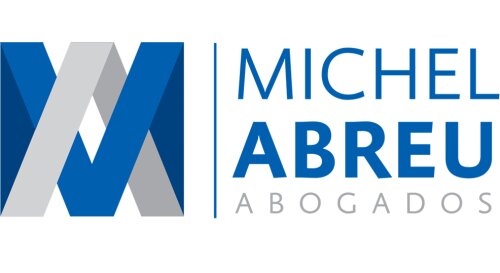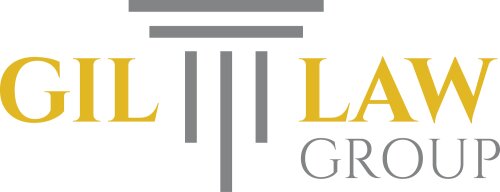Best Energy Regulatory Law Lawyers in Punta Cana
Share your needs with us, get contacted by law firms.
Free. Takes 2 min.
List of the best lawyers in Punta Cana, Dominican Republic
About Energy Regulatory Law in Punta Cana, Dominican Republic
Energy Regulatory Law in Punta Cana, Dominican Republic, governs the production, distribution, and consumption of energy within the region. This branch of law is centered around ensuring fair access to energy, promoting sustainable practices, and regulating the activities of utility providers. As one of the country’s top tourist destinations, Punta Cana experiences unique energy demands that necessitate robust regulatory oversight. The legal framework for energy regulation is shaped by national legislation, sector-specific regulations, and policies from agencies such as the Superintendencia de Electricidad. These laws are implemented to foster efficient energy use, encourage investment in renewable sources, and protect both consumers and providers.
Why You May Need a Lawyer
Navigating Energy Regulatory Law in Punta Cana can be challenging, as it involves a combination of technical, commercial, and environmental considerations. Common scenarios where individuals or businesses might require legal guidance include:
- Negotiating contracts with energy suppliers or distributors
- Seeking permits for renewable energy projects, such as solar or wind installations
- Resolving billing disputes and service interruptions with local utility providers
- Addressing concerns regarding environmental compliance and licensing
- Acquiring or transferring energy infrastructure, such as generators or solar panels
- Participating in government incentives or subsidy programs
- Ensuring compliance with electricity rates and consumer protection regulations
- Defending against regulatory enforcement actions or penalties
An experienced lawyer specializing in Energy Regulatory Law can help interpret the complexities of local statutes, represent clients before regulatory bodies, and ensure all legal requirements are met when operating in Punta Cana's evolving energy market.
Local Laws Overview
Energy Regulatory Law in Punta Cana is primarily governed by the General Electricity Law No. 125-01 and its modifications. The law establishes the legal structure for the generation, transmission, distribution, and commercialization of electricity. Key institutions, such as the Superintendencia de Electricidad (SIE) and the Comisión Nacional de Energía (CNE), oversee licensing, pricing regulations, and dispute resolution.
Most energy production is managed by private or semi-private companies, but the government actively encourages investment in renewable energy, particularly through Law No. 57-07, which provides incentives for renewable energy development. All entities must ensure compliance with environmental laws, building codes, and technical standards. The local energy market is tightly regulated to maintain supply, quality, and fair pricing, especially important given the area’s role in the tourism sector.
Frequently Asked Questions
What is the main regulatory body overseeing energy matters in Punta Cana?
The primary authority is the Superintendencia de Electricidad (SIE), with support from the Comisión Nacional de Energía (CNE) for policy and renewable initiatives.
What laws govern energy regulation in the Dominican Republic?
The General Electricity Law No. 125-01, Law No. 57-07 on renewable energy, and various environmental statutes are the core legal frameworks.
Can foreigners own and operate renewable energy installations in Punta Cana?
Yes, foreigners can own and operate such projects, provided all proper permits, licenses, and environmental clearances are obtained.
What incentives exist for investing in renewable energy?
Investors may receive tax breaks, import duty exemptions, and other benefits under Law No. 57-07, aimed at advancing renewable energy projects.
How are electricity rates set in the region?
Rates are regulated by the SIE and reflect production costs, distribution expenses, and government policy. Consumers have the right to request a review if rates seem unjustified.
What should I do if I have a dispute with a utility company?
File a claim first with the utility provider, then escalate to the SIE if not resolved. Legal counsel can assist in preparing documents and representing your case.
Are there strict environmental regulations for energy projects?
Yes, energy projects must pass rigorous environmental assessments and comply with national environmental laws to operate in Punta Cana.
What are the consequences of failing to comply with energy regulations?
Non-compliance may result in fines, operational shutdowns, or even criminal charges, depending on the severity of the violation.
How do I obtain a license to generate or distribute electricity?
Submit an application to the CNE and SIE, including technical, legal, and environmental documentation. Consulting with a lawyer is highly recommended to ensure all criteria are met.
Can I install a private solar panel system at my home or business?
Yes, private solar panel installations are allowed, subject to regulatory approval and, in some cases, compliance with grid-connection standards and permitting.
Additional Resources
For further guidance or official information regarding Energy Regulatory Law in Punta Cana, the following resources are valuable:
- Superintendencia de Electricidad (SIE) - National regulator issuing licenses and dealing with disputes
- Comisión Nacional de Energía (CNE) - Oversees policy and promotion of renewable energy
- Ministerio de Medio Ambiente y Recursos Naturales - Handles environmental permitting and regulation for energy projects
- Local bar associations and legal aid clinics - Provide directories of accredited energy law specialists
- Chamber of Commerce of Punta Cana - Offers business contacts and industry updates relevant to energy projects
Next Steps
If you find yourself needing expert advice or legal representation in Energy Regulatory Law in Punta Cana, start by gathering all related documentation regarding your current energy project, contract, or dispute. Consider reaching out to a local attorney who specializes in energy matters. Many law firms offer a preliminary consultation where you can outline your situation and get initial guidance.
To move forward efficiently:
- Identify your specific legal needs and goals
- Collect any contracts, correspondence, permits, and technical data related to your case
- Contact a qualified energy regulatory lawyer or legal advisor in Punta Cana
- Ask about their experience with similar cases and their approach to resolving your issue
- Stay informed of your rights and obligations under Dominican energy laws
Remember, addressing legal issues in energy regulation early can help prevent costly disputes, ensure compliance, and support the success of your energy investment or project in Punta Cana.
Lawzana helps you find the best lawyers and law firms in Punta Cana through a curated and pre-screened list of qualified legal professionals. Our platform offers rankings and detailed profiles of attorneys and law firms, allowing you to compare based on practice areas, including Energy Regulatory Law, experience, and client feedback.
Each profile includes a description of the firm's areas of practice, client reviews, team members and partners, year of establishment, spoken languages, office locations, contact information, social media presence, and any published articles or resources. Most firms on our platform speak English and are experienced in both local and international legal matters.
Get a quote from top-rated law firms in Punta Cana, Dominican Republic — quickly, securely, and without unnecessary hassle.
Disclaimer:
The information provided on this page is for general informational purposes only and does not constitute legal advice. While we strive to ensure the accuracy and relevance of the content, legal information may change over time, and interpretations of the law can vary. You should always consult with a qualified legal professional for advice specific to your situation.
We disclaim all liability for actions taken or not taken based on the content of this page. If you believe any information is incorrect or outdated, please contact us, and we will review and update it where appropriate.










